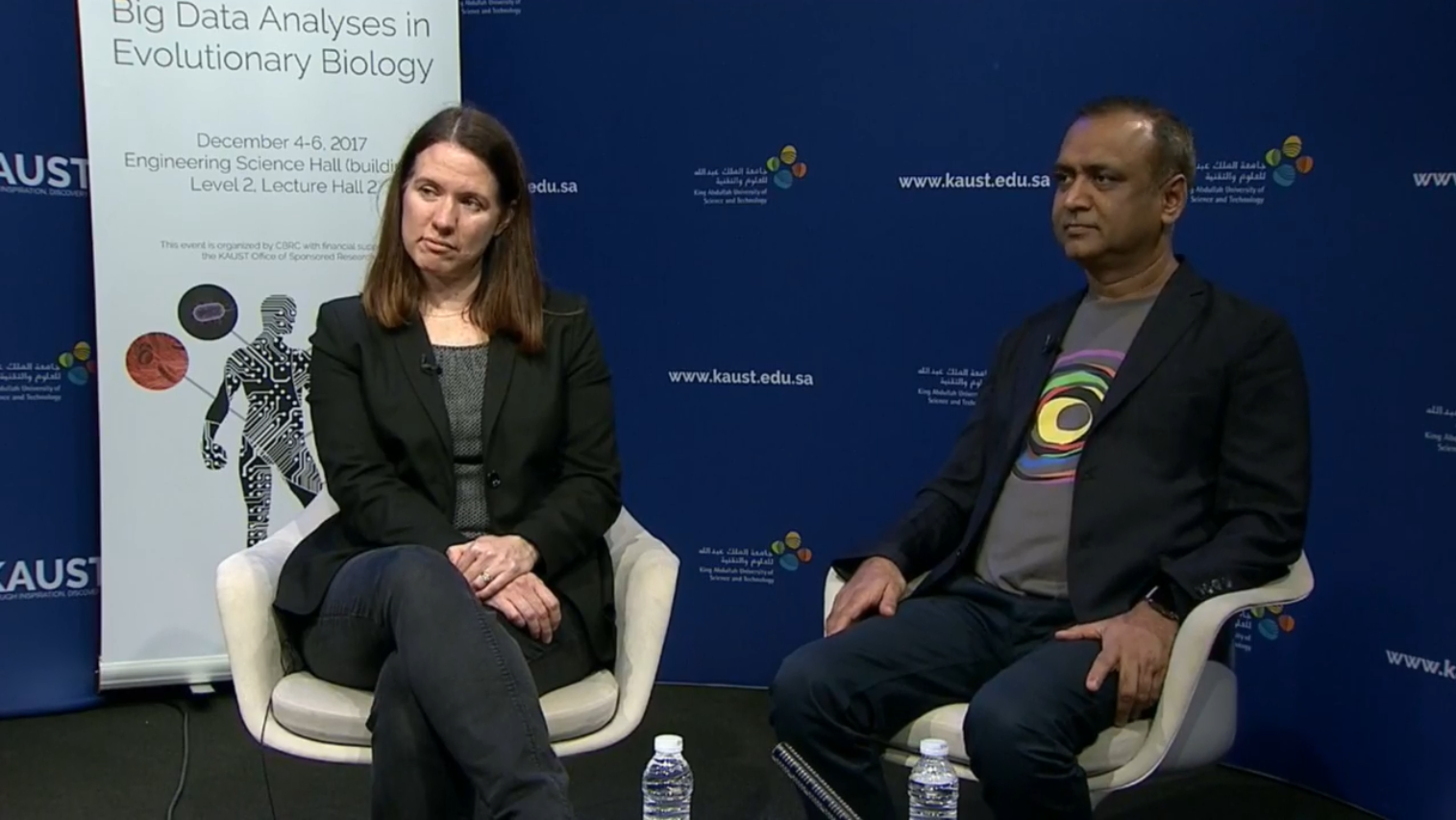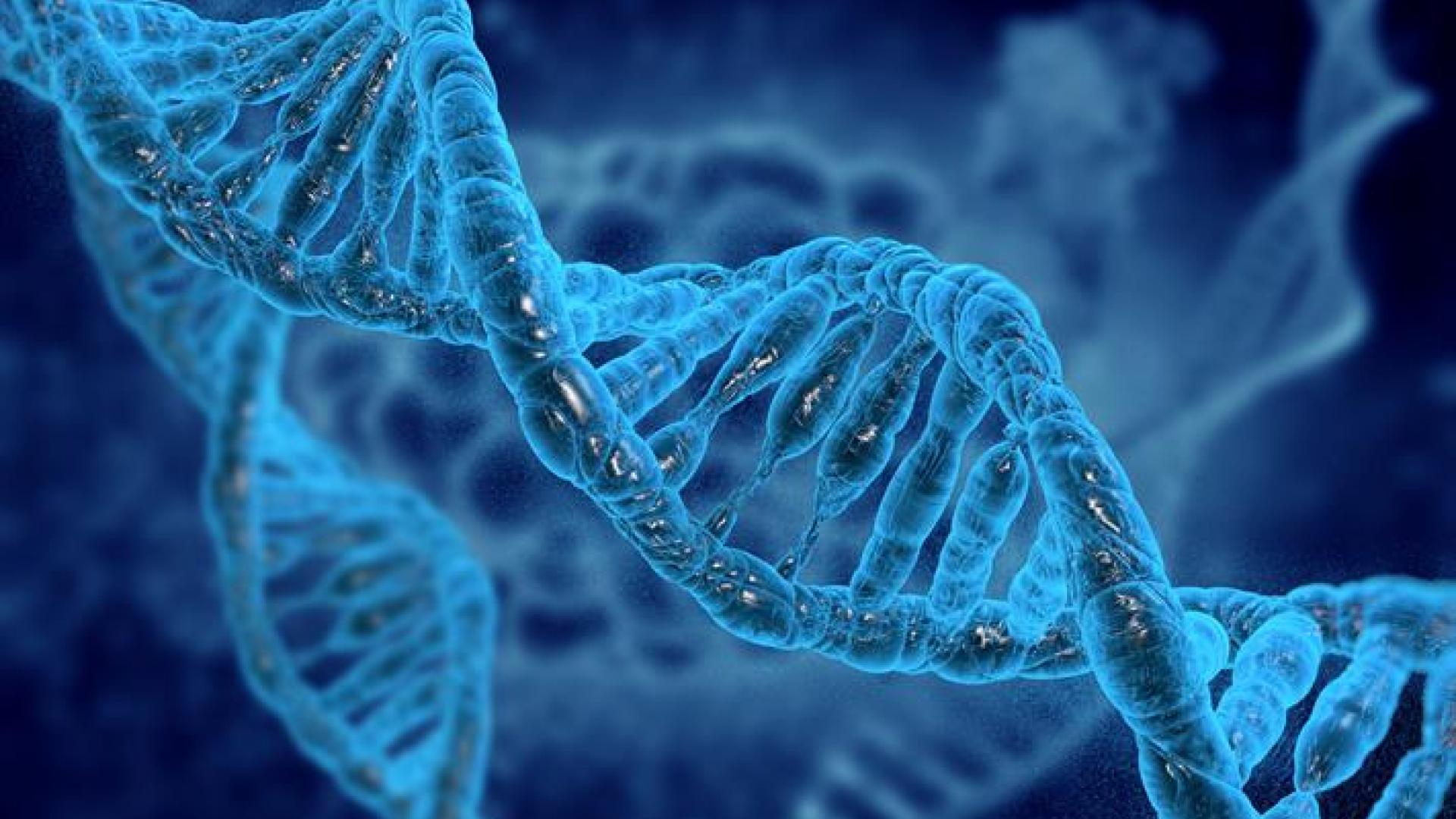-By Andrea Hulsbosch, KAUST News
Janet Kelso, head of the bioinformatics research group at the Max Planck Institute for Evolutionary Anthropology, and Sudhir Kumar, Laura H. Carnell professor and director of the Institute for Genomics and Evolutionary Medicine at Temple University, discussed big data analyses in evolutionary biology during a KAUST Facebook Live interview.
Kelso and Kumar were on KAUST campus as part of the research conference on Big Data Analyses in Evolutionary Biology, hosted by the Computational Bioscience Research Center (CBRC).
Kelso's work focuses on investigating whether there are any interactions between modern humans and Neanderthals. Her team abstracted the first Neanderthal genome and discovered it showed a lot of similarities with our DNA today. This proves that modern humankind interbred with ancient humans, which means we share a common ancestor who lived around 600,000 years ago.
Everyone living outside of Africa carries approximately 2 percent of Neanderthal DNA. Kelso's team recently discovered that this small percentage continues to give us many benefits, mostly concerning environmental adaptation. People today have inherited the possibility to adapt to the climate, foods, pathogens, etc., from the Neanderthals, who developed these skills over millennia.
"Simply put, evolutionary distance is the amount of change that occurred between two DNA sequences," explained Kumar.

In the future, everyone will be able to donate their personal genome sequence together with information about their behavior, idiosyncrasies and diseases, etc. This data can then be put into a "human Google," where scientists can look for genetic mutations and search for other people with the same mutations. Through comparing the data, the possibility arises to find which types of behavior or diseases are associated with a specific mutation. Findings such as these give clinicians, researchers, patients and advocates hope for the development of personalized medicine.
Kumar's work has been cited more than 120,000 times. One of his MEGA software articles was included in the Thomson Reuters Web of Science top 100 most highly cited papers of all time and was designated the top article of the decade by the Scopus database of peer-reviewed literature. With a background in biological sciences and electrical and electronics engineering from Birla Institute of Technology and Sciences, he completed his Ph.D. and postdoctoral work in genetics at Pennsylvania State University. He received an Innovation Award in Functional Genomics from the Burroughs Wellcome Fund in 2000, and is a fellow of the American Association for the Advancement of Science (AAAS).
Kelso received her Ph.D. in bioinformatics from the South African National Bioinformatics Institute at the University of the Western Cape. Under the supervision of Professor Winston Hide, she developed an ontology for classifying gene expression data, for which she won a L'Oreal For Women in Science Fellowship. She is the author of more than 80 peer-reviewed scientific publications. Kelso is the co-editor-in-chief of the journal Bioinformatics and an editor of the journal Database. She is also an active member of the board of the International Society for Computational Biology.
